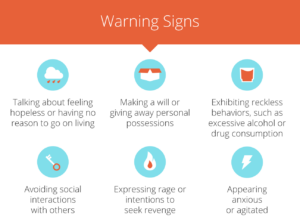Suicide Prevention Awareness: What to do when experiencing suicidal thoughts

September is Suicide Prevention Month, a time dedicated to raising awareness about mental health and supporting those struggling with suicidal thoughts. If you or someone you know is experiencing these difficult feelings, it’s crucial to seek help and support.
Here’s a guide on what to do when struggling with suicidal thoughts:

1. Reach Out to a Trusted Person
Sometimes, the act of simply talking about what you’re going through can provide immense relief. Reach out to a friend, family member, or mentor who you trust. Sharing your feelings with someone who listens and understands can offer emotional support and practical assistance during tough times.
2. Contact a Mental Health Professional
Mental health professionals, such as therapists, counsellors, and psychiatrists, are trained to help individuals navigate these challenging emotions. They can provide therapy, guidance, and treatment options tailored to your needs. If you’re unsure where to start, your primary care physician can often provide referrals.
3. Call a Crisis Hotline
If you’re in immediate need of support, crisis hotlines are available 24/7 in many countries. In Kenya, the Kenya Mental Health Foundation offers support at 0704 707 500. These hotlines are staffed by trained professionals who can offer immediate assistance and guidance.
4. Seek Emergency Help
In cases of crisis, it’s crucial to seek emergency help. Go to the nearest emergency room or call emergency services. Immediate professional intervention can provide the necessary support and ensure your safety.
5. Create a Safety Plan
Developing a safety plan with a mental health professional can be a proactive step in managing suicidal thoughts. This plan should include coping strategies, emergency contacts, and steps to take when you feel overwhelmed. Having a clear plan in place can provide a sense of control and direction during challenging moments.
6. Avoid Drugs and Alcohol
Substance use can exacerbate mental health issues and increase the risk of self-harm. If you’re struggling with suicidal thoughts, it’s important to avoid drugs and alcohol, as they can impair judgment and worsen emotional distress.
7. Engage in Self-Care
Taking care of your physical and mental well-being is essential. Engage in activities that promote health, such as regular exercise, balanced nutrition, and mindfulness practices. Small steps in self-care can have a positive impact on your overall mental health.
 8. Join Support Groups
8. Join Support Groups
Connecting with others who have faced similar experiences can be incredibly validating and comforting. Look for support groups, either in-person or online, where you can share your experiences and gain insights from others who understand what you’re going through.
Remember, You’re Not Alone
Reaching out for help is a sign of strength, not weakness. There are people who care about you and want to support you through this difficult time. September is a reminder that help is available and that there is hope for a brighter future. If you or someone you know is struggling, don’t hesitate to seek the support you need. You deserve to feel better, and there is a path to healing and hope.







